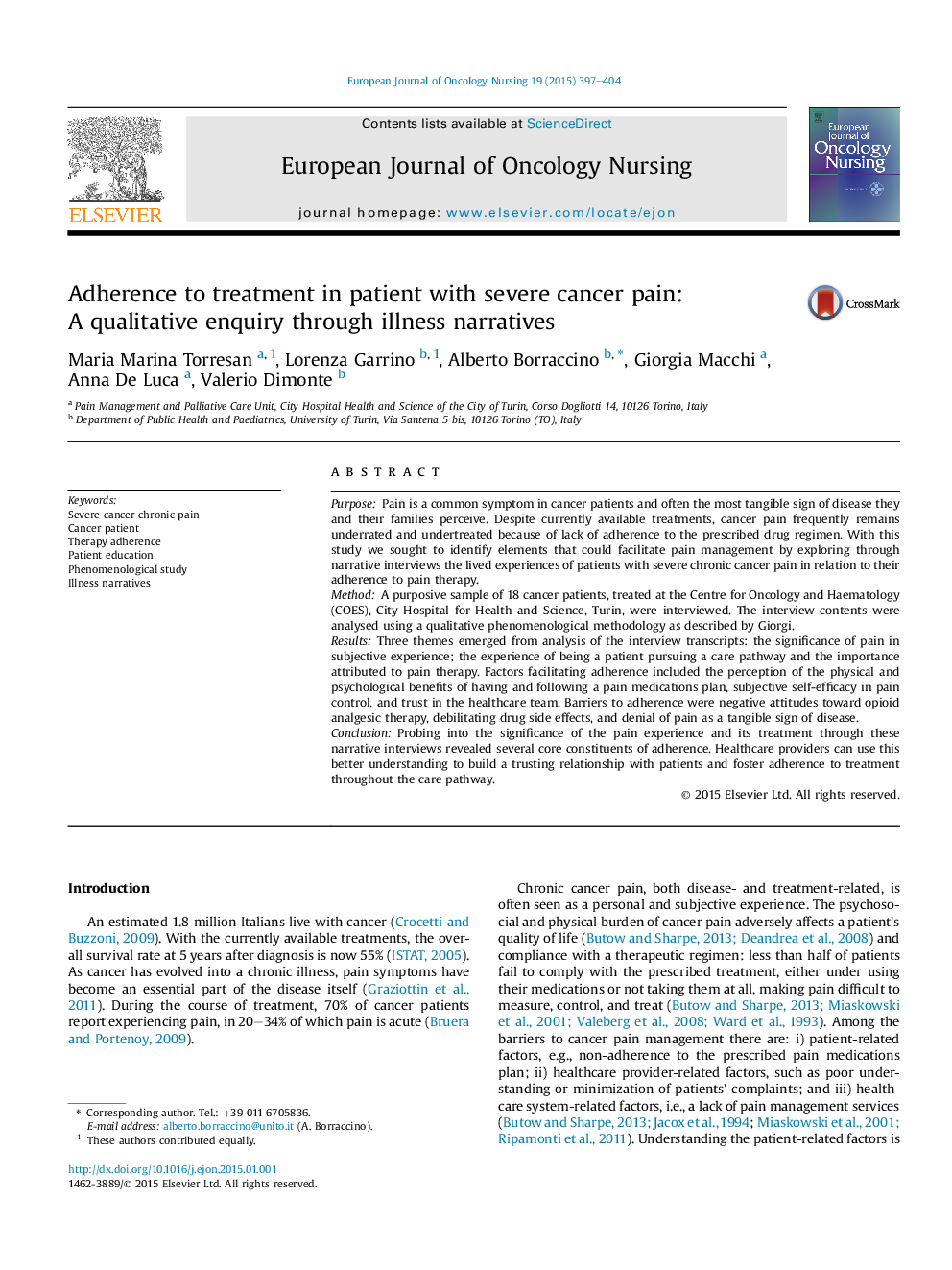| Article ID | Journal | Published Year | Pages | File Type |
|---|---|---|---|---|
| 2649572 | European Journal of Oncology Nursing | 2015 | 8 Pages |
PurposePain is a common symptom in cancer patients and often the most tangible sign of disease they and their families perceive. Despite currently available treatments, cancer pain frequently remains underrated and undertreated because of lack of adherence to the prescribed drug regimen. With this study we sought to identify elements that could facilitate pain management by exploring through narrative interviews the lived experiences of patients with severe chronic cancer pain in relation to their adherence to pain therapy.MethodA purposive sample of 18 cancer patients, treated at the Centre for Oncology and Haematology (COES), City Hospital for Health and Science, Turin, were interviewed. The interview contents were analysed using a qualitative phenomenological methodology as described by Giorgi.ResultsThree themes emerged from analysis of the interview transcripts: the significance of pain in subjective experience; the experience of being a patient pursuing a care pathway and the importance attributed to pain therapy. Factors facilitating adherence included the perception of the physical and psychological benefits of having and following a pain medications plan, subjective self-efficacy in pain control, and trust in the healthcare team. Barriers to adherence were negative attitudes toward opioid analgesic therapy, debilitating drug side effects, and denial of pain as a tangible sign of disease.ConclusionProbing into the significance of the pain experience and its treatment through these narrative interviews revealed several core constituents of adherence. Healthcare providers can use this better understanding to build a trusting relationship with patients and foster adherence to treatment throughout the care pathway.
